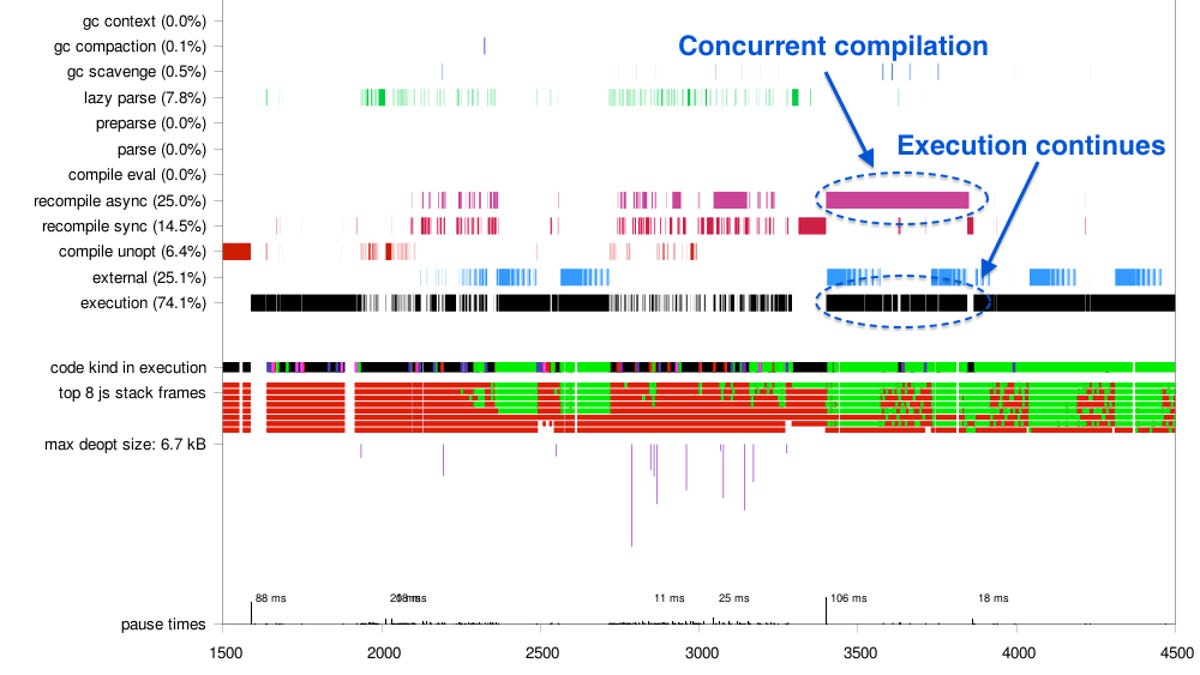Google: Under-the-hood change helps Web apps on Chrome
Concurrent optimization means that Chrome can improve the performance of Web apps more rapidly. It now performs the optimization in the background instead of making users wait.

Google has taught Chrome how to walk and chew gum at the same time.
The newest Chrome beta version, 33, includes a feature called concurrent compilation that means the browser takes a smoother, faster trip to an optimized version of the Web page code it's running.
"Concurrent code compilation is another step towards reducing latency in Chrome," said Chrome programmer Yang Guo in a blog post Thursday.
JavaScript performance is crucial to browsers, which increasingly run Web-based apps written in JavaScript, not just load relatively static Web pages.
Concurrent compilation takes advantage of the fact that most computers these days have multicore processors that can handle multiple simultaneous "threads" of programming instruction sequences. Chrome, like all modern browsers, converts the JavaScript code of Web pages and Web apps into faster-running native code through a process called optimization, but it's tricky to optimize code that's actually running.
Previously, Chrome would pause the execution of the code to tweak the compiled code into an optimized version. Now, though, that optimization takes place in the background without pausing execution.
"Execution continues alongside compilation, providing for a smoother user experience. For instance, concurrent compilation improved the Mandreel score of Octane 2.0 [a Google speed test] by 27 percent on a Nexus 5 and made graphic-intensive applications such as the Epic Citadel Demo run even smoother in Chrome," Guo said.

